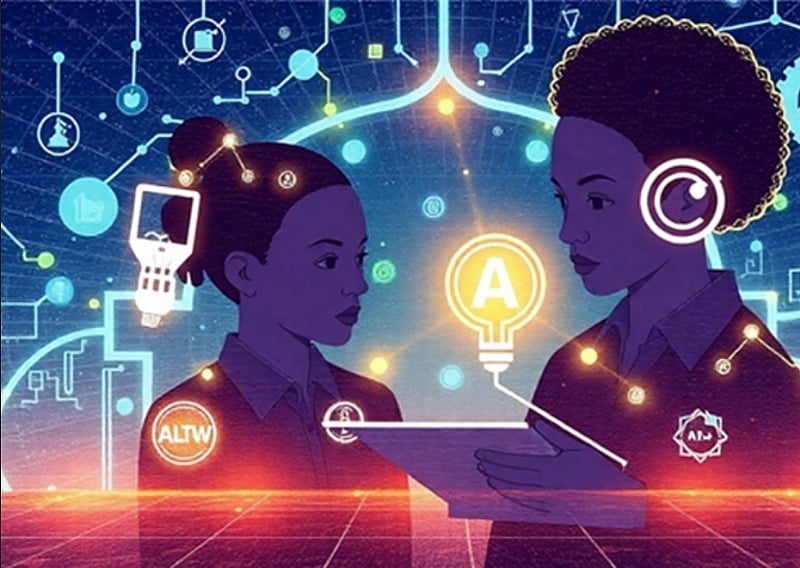Policy coherence remains another critical hurdle. Fragmented institutional landscapes, overlapping mandates, and inconsistent governance structures often impede coordinated implementation of AI education reforms (Institutional fragmentation impeding coordination). In many SSA nations, weak regulatory frameworks and fragmented authority further complicate efforts to institutionalise AI learning objectives, thereby affecting policy outcomes and long-term sustainability (Institutions shaping policy outcomes; Regulatory frameworks underpinning financial stability).
Gender disparities also pose significant concerns. While global studies affirm that gender parity in leadership enriches institutional responsiveness, many SSA education systems still grapple with unequal access and participation in STEM fields, including AI (Gender parity enriching institutional responsiveness; Gender-sensitive policy design driving equity). Closing these gaps is essential to ensure inclusive development outcomes and to harness the full potential of Africa’s youth demographic.
Moreover, social accountability mechanisms in many regions remain underdeveloped, limiting the capacity of communities to participate meaningfully in education governance and programme evaluation (Social accountability mechanisms enhancing service quality). Strengthening these mechanisms is vital to build trust, enhance transparency, and foster greater public engagement, all of which contribute to institutional legitimacy (Accountability mechanisms bolstering institutional legitimacy).
Amidst these challenges, there are promising efforts underway. Countries such as Ghana and Nigeria have begun pilot programmes integrating AI into school curricula and teacher training, illustrating pathways to overcome systemic barriers through collaborative governance and stakeholder engagement (Collaborative governance fostering legitimacy; Stakeholder engagement for successful PPPs). These initiatives emphasise the importance of harnessing local social capital and indigenous knowledge systems to ensure contextual relevance and sustainability (Social capital’s role in participatory development; Indigenous knowledge in climate resilience).
Global Best Practices for AI Education: What SSA Can Learn
In the global race to harness artificial intelligence, several countries have demonstrated exemplary approaches to integrating AI education across their schooling systems. These models offer valuable lessons for Sub-Saharan Africa (SSA) as it seeks to bridge the AI education gap with strategic reforms tailored to local contexts.
China has been at the forefront of systemic AI education reform, embedding AI modules from primary schools through to universities. The government’s comprehensive policy mandates AI literacy as a national priority, supported by significant investments in teacher training, curriculum development, and public-private partnerships with leading AI firms such as SenseTime (Asia Pacific Foundation of Canada, 2022; Reuters, 2025). This approach exemplifies the power of strategic leadership styles driving innovation and performance by fostering institutional creativity and resilience (Leadership styles driving innovation and performance). Furthermore, China’s model benefits from collaborative governance frameworks that promote legitimacy through multi-sector engagement (Collaborative governance fostering legitimacy).
South Korea provides another instructive example, having introduced AI education at the high school level by 2021 with plans to extend it to kindergarten through eighth grade by 2025 (Synced, 2020). Their curriculum includes introductory AI concepts, AI-focused mathematics, programming, and critical AI ethics modules. Central to South Korea’s success is the training of over 5,000 teachers in AI pedagogy, addressing the capacity development bottleneck many developing regions face (Capacity development as a reform bottleneck). This nationwide effort reflects a policy coherence that aligns educational objectives with technological advancements and workforce needs (Policy coherence as a development linchpin).
Singapore’s “Code for Fun” programme introduces AI and coding modules across upper primary and secondary levels, with particular emphasis on emerging topics such as generative AI, robotics, and AI safety (IMDA Singapore, 2023). Singapore’s model highlights the role of digital transformation as a critical lever for operational efficiency and competitiveness across sectors, including education (Digital transformation as an efficiency enhancer). It also demonstrates how early exposure to AI concepts can prepare students for a digital economy.
The United States offers insights into decentralised yet effective AI education strategies. By fall 2023, approximately 23% of U.S. school districts had trained teachers in AI, with 37% more planning to do so, resulting in a 60% overall readiness rate (RAND, 2024). This widespread teacher training underscores the importance of accountability mechanisms and performance legitimacy, which together enhance institutional responsiveness and public trust (Accountability mechanisms bolstering institutional legitimacy; Performance legitimacy complementing input legitimacy). The U.S. also exemplifies the value of evidence-based policymaking to continuously refine educational frameworks (Evidence-based policymaking improving governance).
By Dr. Ahmed Antwi-Boampong, a Lead Researcher & Senior Fellow, AI in Education, AiAfrica Initiative and Dr. David King Boison, a maritime and port expert, AI Consultant and Senior Fellow CIMAG.


